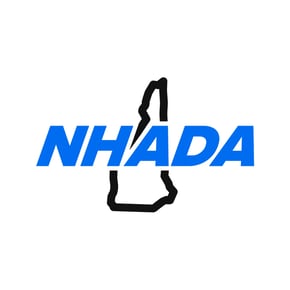
Know Your Rights When Subjected To An Audit
Several New Hampshire dealers recently have been the subject of a manufacturer’s warranty audit. It appears that we are entering another cycle where manufacturers are actively pursuing warranty audits. Dealers who have been notified of an upcoming audit should be aware of their rights under the New Hampshire Dealer Bill of Rights, RSA 357-C. Dealers have several protections under New Hampshire law.
PARTNER SPOTLIGHT
Dealer Management System, Computer Technology, Media/Advertising, Automotive Auction, F & I/Aftermarket Products, Automotive Technology Training & Compliance
 A NHADA Gold PARTNER
A NHADA Gold PARTNERComputer Technology, Automotive Shop Equipment, Environmental Services
 A NHADA Platinum PARTNER
A NHADA Platinum PARTNERF & I/Aftermarket Products, Automotive Technology Training & Compliance, Environmental Services
.png?width=150&name=corp_logo_horz_on_light_with_trademark_symbol_1200w%20(002).png) A NHADA Diamond PARTNER
A NHADA Diamond PARTNERFirst, a manufacturer retains the right to audit warranty claims for a period of only 9 months from the date the claim is paid. However, the manufacturer retains the right to charge back a fraudulent warranty claim for three years.
Second, RSA 357-C allows a warranty chargeback for only four reasons:
- The claim was false or fraudulent, or
- The repairs were not properly made, or
- The repairs were unnecessary to correct the defective condition, or
- The dealer failed to reasonably substantiate that the claim was in accordance with the written requirements of the manufacturer or distributor in effect at the time the claim arose.
The 2013 amendments to RSA 357-C added a further restriction. In order to prevent chargebacks due to administrative or clerical errors, a warranty claim cannot be charged back “solely based on a dealer’s incidental failure to comply with a specific claim processing requirement, or a clerical error, or other administrative technicality.”
Third, the manufacturer is required to prove that each warranty claim the manufacturer proposes to charge back comes within one of the four reasons to justify the chargeback. If, after any appeal process provided by the manufacturer the dealer is not satisfied with the audit result, the dealer can file a protest with the New Hampshire Motor Vehicle Industry Board within 30 days of the notification of the final amount claimed by the manufacturer after the internal appeal. Filing the protest automatically stays the matter and prevents the manufacturer from charging back the audit until the Board has heard the matter and issued an order itemizing the chargebacks that the Board finds comply with the statutory standards, if any. The Board will hold a rather informal hearing where the manufacturer, through the auditor, and the dealer, probably through the service manager, will explain their reasons for claiming why each individual warranty claim should or should not be charged back. Each party can be represented by counsel.
Fourth, a prevailing dealer can petition the Superior Court for reimbursement from the manufacturer of the dealer’s attorney's fees expended in filing and processing the protest at the Board. The dealer's claim for attorney's fees is based on RSA 357-C:12, X, which states:
“In cases where the board finds that a violation of this chapter has occurred or there has been a failure to show good cause under RSA 357-C:7 or RSA 357-C:9, the superior court, upon petition, shall determine reasonable attorney's fees and costs and award them to the prevailing party."
There was a split among superior court judges on whether the attorney’s fees statute applied in a warranty audit protest. In one case the judge ruled that the statute applied to warranty audit protests and awarded fees, but in similar case a different judge ruled that the statute did not apply and declined to award fees. The 2013 amendments to RSA 357-C sought to ensure that the fees statute applies to warranty audit protests by adding a definition of “chargeback.” The New Hampshire Supreme Court has interpreted the new definition of “chargeback” to mean that “a manufacturer can violate [the warranty audit protections in RSA 357-C] either by withdrawing funds or by announcing an intention to withdraw funds from a dealer for claims that the dealer can reasonably substantiate.” Now, the statute clearly provides that a dealer who is a prevailing party will recover his attorney’s fees.
A manufacturer retains the right to audit incentive and reimbursement programs for 9 months after the date the claim is paid, or 9 months from the end of a program that does not exceed one year, whichever is later. RSA 357-C allows charge backs of incentive and reimbursement programs for any claims that are found to be “false or unsubstantiated.” Incentive or reimbursement program chargebacks can be challenged by filing a protest at the Motor Vehicle Board within 30 days of the notification of the final amount claimed by the manufacturer after the internal appeal. The hearing at the Board follows the same procedure as in the case of a warranty audit hearing.
The statutory procedure for protesting audits works. In a recent warranty audit protest the Motor Vehicle Industry Board refused to allow the manufacturer to chargeback 96.5% of the dollar amount that was originally protested. No dealer enjoys an audit. However, don't give up and assume that you have no place to turn. You have protections from the New Hampshire Dealer Bill of Rights.


















.png?width=150&name=Ally_Final%20Logos%20and%20Pairings_11.14.2018-01%20(2).png)


-2.png?width=150&name=Wipfli%20Logo%20Blue%20RGB%20(1)-2.png)


.jpg?width=150&name=NHADA_Partner_FTR_Img_NHADA_Insurance%20(1).jpg)


.jpg?width=150&name=NHADA_Partner_FTR_Img_JMA(1).jpg)


